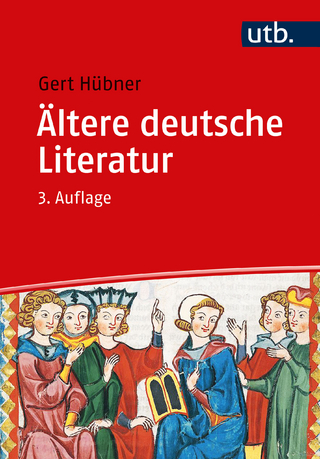
Count and Bishop in Medieval Germany
A Study of Regional Power, 11-135
Seiten
1991
University of Pennsylvania Press (Verlag)
978-0-8122-3084-0 (ISBN)
University of Pennsylvania Press (Verlag)
978-0-8122-3084-0 (ISBN)
- Lieferbar (Termin unbekannt)
- Versandkostenfrei innerhalb Deutschlands
- Auch auf Rechnung
- Verfügbarkeit in der Filiale vor Ort prüfen
- Artikel merken
This study of the functions of lordship in a medieval society focuses on the Eichstatt region, an area on the borders of the German provinces of Bavaria, Franconia and Swabia. It argues that the area achieved orderly social and legal processes as an alternative to a centralized monarchy.
In this examination of the functions of lordship in a medieval society, Benjamin Arnold seeks answers to some of the most fundamental questions for the period of political and institutional history: How did the lords maintain control over the people, land, and resources? How was their rule sustained and justified?
Arnold chooses to analyze the Eichstätt region, an area on the borders of three major German provinces: Bavaria, Franconia, and Swabia. The region was the geographical and political dimension within which succeeding bishops, with great tenacity and inventiveness, survived the threat of dominion by their secular neighbors, the counts. The bishops of Eichstätt were able to emerge with a durable territorial structure of their own, which they succeeded in recasting, between 1280 and 1320, into a credible and long-lasting principality.
Modern ideas of political progress, Arnold contends, tend to be unfair to medieval institutions that have not left easily recognizable descendants. He argues that it would be more prudent to observe in the territorial fragmentation of Germany not the triumph of chaos but the outcome of a reasonably orderly social and legal process that provided alternative institutions to those of a centralized or national monarchy.
In this examination of the functions of lordship in a medieval society, Benjamin Arnold seeks answers to some of the most fundamental questions for the period of political and institutional history: How did the lords maintain control over the people, land, and resources? How was their rule sustained and justified?
Arnold chooses to analyze the Eichstätt region, an area on the borders of three major German provinces: Bavaria, Franconia, and Swabia. The region was the geographical and political dimension within which succeeding bishops, with great tenacity and inventiveness, survived the threat of dominion by their secular neighbors, the counts. The bishops of Eichstätt were able to emerge with a durable territorial structure of their own, which they succeeded in recasting, between 1280 and 1320, into a credible and long-lasting principality.
Modern ideas of political progress, Arnold contends, tend to be unfair to medieval institutions that have not left easily recognizable descendants. He argues that it would be more prudent to observe in the territorial fragmentation of Germany not the triumph of chaos but the outcome of a reasonably orderly social and legal process that provided alternative institutions to those of a centralized or national monarchy.
Benjamin Arnold is Professor of Medieval History at the University of Reading.
| Reihe/Serie | Anniversary Collection |
|---|---|
| Zusatzinfo | 1 illus. |
| Verlagsort | Pennsylvania |
| Sprache | englisch |
| Maße | 152 x 229 mm |
| Themenwelt | Geschichte ► Allgemeine Geschichte ► Mittelalter |
| Geisteswissenschaften ► Geschichte ► Regional- / Ländergeschichte | |
| Geschichte ► Teilgebiete der Geschichte ► Kulturgeschichte | |
| ISBN-10 | 0-8122-3084-1 / 0812230841 |
| ISBN-13 | 978-0-8122-3084-0 / 9780812230840 |
| Zustand | Neuware |
| Haben Sie eine Frage zum Produkt? |
Mehr entdecken
aus dem Bereich
aus dem Bereich
eine neue Geschichte des Mittelalters
Buch | Hardcover (2023)
C.H.Beck (Verlag)
38,00 €


